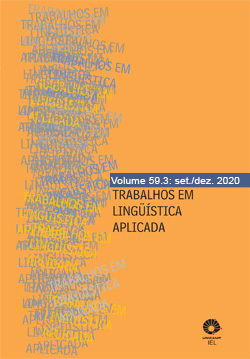Resumen
Uno de los mayores desafíos de nuestro tiempo es la falta de voz para los cuerpos maltratados. Son los cuerpos de niños, hombres y mujeres los que han heredado las brutalidades del colonialismo, la servidumbre de las plantaciones y la esclavitud, y ahora reviven estas miserias en el vientre del capitalismo global neoliberal y patriarcal. Son los cuerpos racializados, sexualizados, de género y sin Dios los que tomaron forma por primera vez en la colonialidad-modernidad junto con el surgimiento de MAN, el hombre blanco, racional, sin cuerpo, como EL HUMANO. Hoy en día mantienen su forma a través de tecnologías de vulnerabilidad, con las que la falta de voz fabricada funciona en sinergia dinámica. Este es particularmente el caso en Sudáfrica, con sus inquietantes historias y sus historias presentes, sus emociones crudas y sus dolorosas vulnerabilidades del patriarcado racializado y neoliberal. En este artículo, sugerimos que la vulnerabilidad, además de su efecto potencialmente devastador en las almas y los medios de subsistencia, también puede ser un lugar productivo para articular voces alternativas y habitualmente silenciadas. En este sentido, exploramos cómo un enfoque en los actos de ciudadanía linguística puede guiar el pensamiento sobre la voz y el albedrío a diferentes lugares del cuerpo, así como permitir una visión de tecnologías complejas y prácticas de vulnerabilidad.
Citas
ARENDT, H. (1998). The Human Condition. Chicago: University of Chicago Press.
BOCK, Z.; STROUD, C. (2018). Zombi landscapes: representations of apartheid in the discourses of young South Africans. In A. Peck, Q. Williams and C. Stroud (eds) People in Place: Making Sense of Linguistic Landscapes. London: Bloomsbury.
BROOKS, A. (2020). Fugitive listenings: Sounds from the Undercommons. Theory, Culture and Society, v. 37, n. 6, p. 25-45.
BROWN, W. (1995). States of Injury: Power and Freedom in Late Modernity. Princeton: Princeton University Press.
BUTLER, J. (2004). Precarious Life: The Powers of Mourning and Violence. London: Verso Press.
BUTLER, J. (2010). Frames of War: When is Life Grievable? London: Verso.
DIPROSE, R. (2013). Corporeal Interdependence: From Vulnerability to Dwelling in Ethical Community SubStance, v. 42, n. 3, p. 185-204.
FANON, F. (1952 [2008]). Black Skin, White Masks. New York: Grove Press.
GORDON, L. (2015). What Fanon Said: a philosophical introduction to his life and thought. Fordham University Press.
GQOLA, P. (2015). Rape: a South African nightmare. Johannesburg: Jacana Media.
HARNEY, S.; MOTEN, F. (2013). The Undercommons: Fugitive Planning and Black Study. 1-165. Research Collection Lee Kong Chian School of Business. Available at: https://ink.library.smu.edu.sg/lkcsb_research/5025
KULICK, D.; RYDSTROM, J. (2015). Loneliness and its opposite: sex, disability, and the ethics of engagement. Durham and London: Duke University Press.
MBANGENI, L. (2016). ‘Don’t mock breasts that saved us from rubber bullets’. Independent Online (IOL).
MFECANE, S. (2016). “Ndiyindodoa” [I am a man]: theorising Xhosa masculinity. Anthropology Southern Africa, v. 39, n. 3, p. 204-214.
MILANI, T. (2018). Is the rectum a goldmine? Queer theory, consumer masculinities, and capital pleasures. BAKER, P.; BALIRANO, G. (eds). Queering Masculinities in Language and Culture. pp. 19-42. Basingstoke: Palgrave and Macmillan.
NDLOVU, M. W. (2018). #FeesMustFall and Youth Mobilisation in South Africa: Reform or Resolution? London: Routledge.
PETHERBRIDGE, D. (2016). What’s Critical about Vulnerability? Rethinking interdependence, recognition and power. Hypatia, v. 31, n. 3, p. 589-605.
SABSAY, L. (2016). ‘Permeable bodies’: Vulnerability, affective powers, hegemony. In BUTLER, J.; GAMBETTI, Z.; SABSAY, L. (eds.). Vulnerability in resistance. Duke University Press.
SANTOS, B. (2018). The End of Cognitive Empire: the coming age of epistemologies of the South. Durham and London: Duke University Press.
STROUD, C. (2001). African mother-tongue programmes and the politics of language: Linguistic citizenship versus linguistic human rights. Journal of Multilingual and Multicultural Development, v. 22, p. 4, p. 339–355.
STROUD, C. (2018). Linguistic Citizenship. In LIM, L.; STROUD, C.; WEE, Lionel (eds). The Multilingual Citizen. Towards a Politics of Language for Agency and Change. pp. 17-39. Bristol: Multilingual Matters.
STROUD, C.; Williams, Q. E. (2017). Multilingualism as Utopia: Fashioning Non-Racial Selves. AILA Review, v. 30, p. 165-186.
TAYLOR, J. (2005). Surfacing the body interior. Annual Review of Anthropology, v. 14, p. 741-56.
TROUILLOT, M. (2003). Global Transformations: Anthropology and the modern world. Palgrave Macmillan: New York.
VERONELLI, G. (2015). The Coloniality of Language: Race, Expressivity, Power, and the Darker Side of Modernity. Waguda, v. 13, p. 108-134.
VERONELLI, G. (2016). A Coalitional Approach to Theorizing Decolonial Communication. Hypatia, v. 31, n. 2, p. 401-520.
WEHELIYE, A. (2014). Habeas Viscus: Racializing Assemblages, Biopolitics and Black Feminist Theories of the Human. Durham, NC: Duke University Press.
WHITTLES, G. (2016). How brute force yielded to naked resistance. Mail & Guardian.
WILLIAMS, Q. (2016). Youth Multilingualism in South Africa’s Hip-Hop Culture: a metapragmatic analysis. Sociolinguistic Studies, v. 10, n. 1, p. 109-133.
WILLIAMS, Q.; STROUD, C. (2017). Linguistic Citizenship: language and politics in postnational modernities. In Milani, T. Language and Citizenship: Broadening the agenda pp. 89-112. Amsterdam: Johns Benjamins Publishing Company.
WYNTER, S. (2003). Unsettling the Coloniality of Being/Power/Truth/Freedom: Toward the Human after Man, its Overrepresentation – An Argument. CR: The New Centennial Review, v. 3, n. 3, p. 257-337.
ZIAREK, E. P. (2013). Feminist Reflections on Vulnerability: Disrespect, Obligation, Action. SubStance, v. 42, n. 3, p. 67-84.

Esta obra está bajo una licencia internacional Creative Commons Atribución 4.0.
Derechos de autor 2021 Trabalhos em Linguística Aplicada


